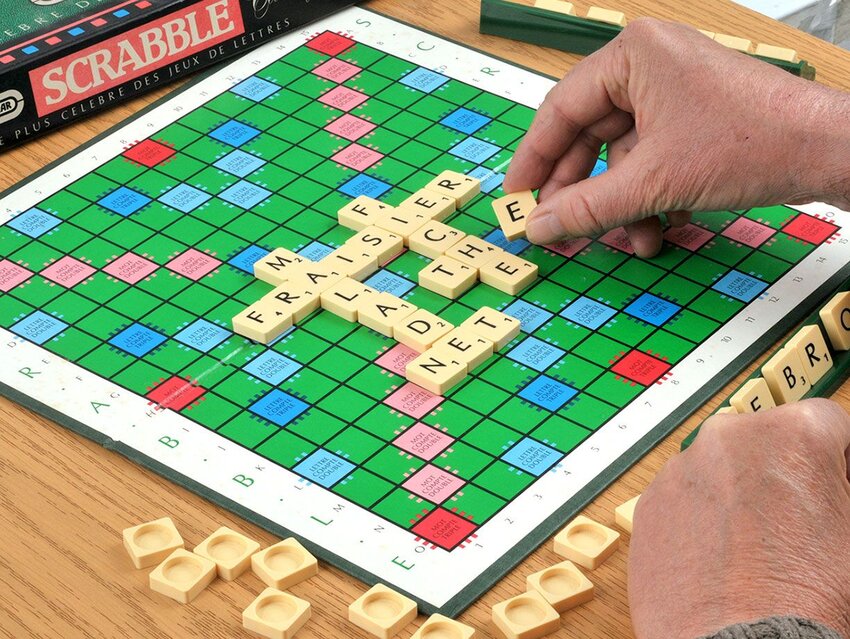Originally called Criss-Cross, the board game Scrabble was developed by architect Alfred M. Butts in 1931 to evoke crossword puzzles and anagram word games. Eventually, it was redesigned and sold in the U.K. in 1954. The game is pretty straightforward: To start, players draw seven letter tiles, each of which has a point-value of 1 to 10 based on how frequently it appears in the English language. (Most vowels, with the exception of “Y,” are scored at 1 point, whereas a “Z” or a “Q” will net 10 points for usage.) Players then try to create words with these tiles based on what’s already on the board.
Seems easy enough, right? You might think longer words always net a higher score; however, a common strategy among top-level and professional players is to take advantage of the numerous two-letter words in the Scrabble dictionary. These allow a wordsmith to build parallel to a word instead of perpendicularly, meaning the player earns points for the longer word built, as well as all the two-letter words spelled at the same time. Beyond that, the tiny words help a player dump letters at the end of the game, counteracting the rule that requires players to subtract points at the end due to leftover tiles.
Consider this play described by one Scrabble strategy website: “Throwing down AX parallel on the MU of MUGWORT gives you three words in one move (AX, AM, XU), plus the X is on a double letter score, which means you get those 8 points doubled to 16, then that's doubled to 32, which makes the whole play 38 points total. Quite a lot for just two letters. Imagine if it was on a triple letter score!”
It’s also important to know the geographical rules of the game — in North America, there are only 101 acceptable two-letter words, whereas in the rest of the world, there are 124. With that in mind, here’s an abridged list of acceptable two-letter Scrabble words, all of which come from The Official Scrabble Players Dictionary, Fourth Edition.
AA
This is a Hawaiian term for lava with a rough, cindery surface, pronounced “ah-ah.”
AI
An “ai” is a three-toed sloth that inhabits the forests of southern Venezuela, the Guianas, and northern Brazil.
BA
In Egyptian mythology, “ba” is a term for the eternal soul, typically appearing in bird form.
EF
This is simply the phonetic spelling of the letter “f.”
ET
“Et” is a nonstandard, dialectic past-tense version of the verb “eat.”
JO
This word is a Scottish term for “sweetheart,” derived from the word “joy.”
KI
This is an alternative spelling of “qi,” the vital life force in Chinese thought.
MI
As immortalized in The Sound of Music, “mi” is the third tone of the diatonic musical scale.
NE
From the French, “ne” is a descriptor used to articulate the use of a former name.
OE
Another word derived from Scottish English, “oe” refers to a violent whirlwind that occurs off the coast of the Faroe Islands, a group of islands off North East Scotland, about halfway between Scotland and Iceland.
PE
“Pe” is the 17th letter in the Hebrew alphabet.
QI
“Qi” is the vital life force inherent in all things traditional to Chinese thought and spirituality.
TA
“Ta” is an informal, British expression of gratitude, like an abbreviated “thanks.”
UT
“Ut” is from French — another word for the musical tone “C” — replaced by “do” in alternative versions of the scale.
WO
This is an alternative, outdated spelling of “woe,” meaning tremendous grief.
XU
“Xu” is a monetary unit in Vietnam.

